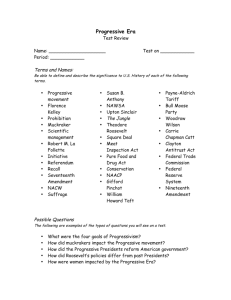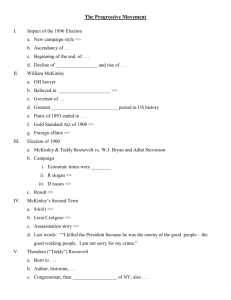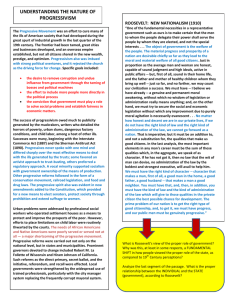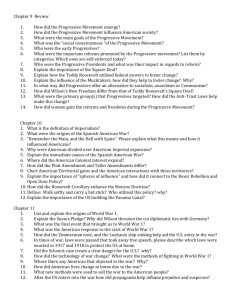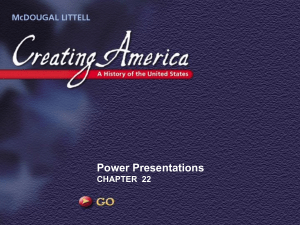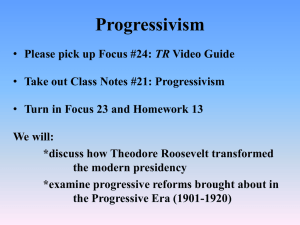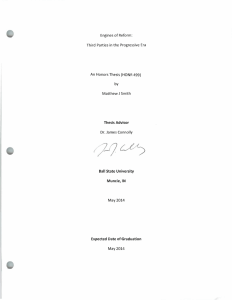Document
advertisement
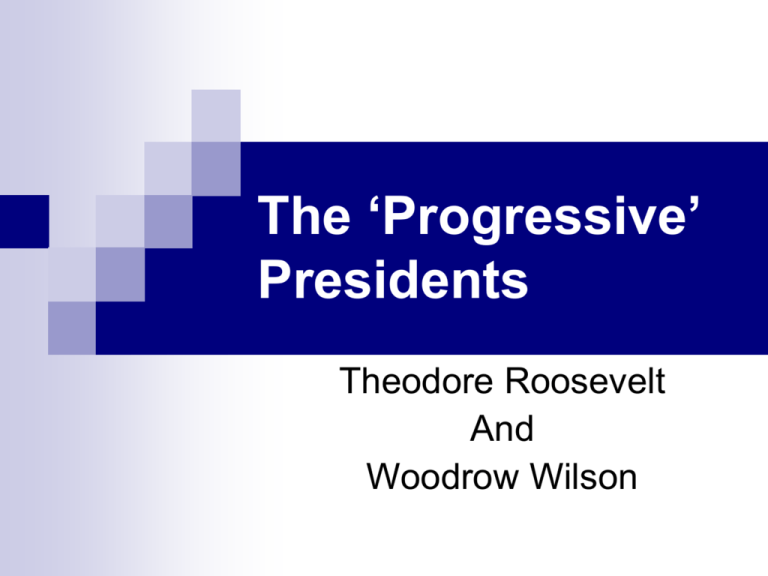
The ‘Progressive’ Presidents Theodore Roosevelt And Woodrow Wilson The Other Roosevelt – “Teddy” Asst. Secretary of Navy Resigned to serve as Lt. Colonel in Spanish-American War (Rough Riders) Governor of New York Republican V.P to McKinley (1900) “Speak softly and carry a big stick and you will go far” The 1st Progressive President McKinley assassinated (1901) TR - 26th P.O.T.U.S. Youngest at age of 42 Dynamic personality won reform Federal Government should assume control when states could not handle problems President should be “steward” of the people Roosevelt’s ‘Square Deal’ Progressive Reforms Control of Corporations Curb the power of the corporations Elkins Acts (1903) & Hepburn Act (1906) Regulation on the railroads Consumer Protection Intervened when strikes threaten public welfare “Trust-buster”: 44 anti-trust suits Coal Strike (1902) Meat Inspection Act: Required USDA Meat Inspection Pure Food and Drug Act: Paved way for FDA Conservation of Natural Resources Environmental Awareness: 148 mil. acres for Forest Preserves William H. Taft Handpicked successor by Roosevelt Never lived up to ‘Progressive’ tag – restrained concept of presidency Best known as largest president (350 Lbs) Wilson’s Progressive Reforms Unrivaled reforms until FDR ‘New Deal’ Assault on the “Triple Wall of Privilege” Federal Reserve Act Central banking system of the U.S. Clayton Antitrust Act sought to prevent non-competitive practices Federal Trade Commission Act oversight committee to curb unfair business activities Sixteenth Amendment Levy of Federal Income Tax The Progressive Era Not a complete success Sparked new ideas and thinking Challenged traditional ideas Goals were contradictory due to different schools of thought Federal Government still too influenced by big business/industry
